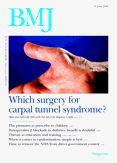
A British Medical Journal study released in March, 2006 has prompted a media flurry of reports on the worthlessness of fish oil. (Hooper L, Thompson RL, Harrison RA et al. Risks and benefits of omega 3 fats for mortality, cardiovascular disease, and cancer: a systematic review. BMJ March,2006)
Don't believe it for a second.
First of all, the study was a re-analysis of the existing published scientific literature. It was not a new study. It included a wild conglomeration of different clinical observations, as the studies examining fish oil over the years have been extraordinarily heterogeneous--in populations examined, omega-3 supplement (e.g., fish vs. capsule), period of observation, endpoints measured.
The results were skewed by inclusion of a moderate-sized British study by Burr et al in men with angina. In this study, no benefit was demonstrated and, in fact, a negative effect--more heart attack and death--was observed with fish oil. This was not news, since the study was published in 2003. It's results have been a mystery to everyone, since its unexpected negative result for fish oil was so starkly different from virtually every other study that preceded it (suggesting a study flaw or statistical fluke).
Nonetheless, the Burr study served to throw off the overall analysis. It diluted the dramatic and persuasive outcome of the GISSI-Prevenzione Study of 11,000 people in which a 28% reduction in heart attack and 45% reduction in cardiovascular death was observed. Note that the substantial numbers of the GISSI make the study's outcome nearly unassailable.
Another important fact: fish oil is among the most powerful tools available to correct elevated triglycerides. Drops of 50% are common. Recall that triglycerides are a necessary ingredient to create the nasty LDL, as well as VLDL, Intermediate-density lipoprotein, and an undesirable shift from large to ineffective small HDL. Reducing triglycerides is therefore crucial for your plaque control program.
This re-analysis serves to prove nothing. Such analyses can only pose questions for further study in a real study like GISSI: a randomized (random participant assignment), controlled (treatment vs. placebo or other treatment) study.
The weight of evidence remains heavily in favor of fish oil, not only as helpful, but fabulously beneficial, particularly for anyone aiming to reduce coronary plaque.